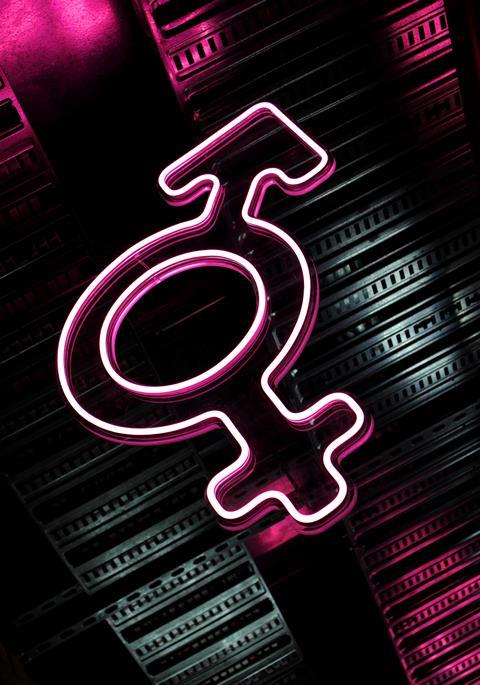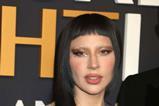Hope Bonarcher reveals what she believes is a harmful disconnect between our culture and the word of God in the areas of inclusion and identity

This year, the theme for International Women’s Day (IWD) is ‘Inspire Inclusion’. Inclusion is a definite buzz word in our culture today. From the NHS to uk.gov, from boardrooms to classrooms, social media and television, if you’ve not heard of diversity, equity and inclusion, you’re not listening hard enough. As we zero in on the IWD website and their idea of inclusion, we read things like: “When women aren’t present, we must ask: ‘If not, why not?’” It also asserts that “when women themselves are inspired to be included, there’s a sense of belonging, relevance and empowerment”.
But wait a minute: doesn’t inspiring inclusion presuppose the presence of exclusion in some way? Are we assuming what gives value to a role or position is that men hold it? When the bin lorry rolls by on a weekday morning, do we women scratch our chins and say: “I’m feeling excluded”? When the Ukrainian war began in 2020, there were whispers in the air of American women being drafted. A war studies professor from a Texas university was quoted by the BBC as saying: “The mere fact that women would have to register [for the draft] would signal a national recognition that everyone is expected to serve if needed and that everyone’s service is valued equally.” I’m not sure many women and girls breathed a sigh of relief at being included in that number!
If you’ve not heard of diversity, equity and inclusion, you’re not listening hard enough
And why not? Could it be that men and women are not (shock horror!) interchangeable? Not if you ask Kim Kardashian. She received the quizzical honour of ‘Man of the Year’ on the cover of GQ magazine last December. It also works the other way. ‘Women of the Year’ awards have been given to transgender people who, although identify as female, were born male like the US assistant secretary for health, Rachel Levine, former men’s Olympic champion, Caitlyn Jenner, and ‘Sportswoman of the Year’ in New Zealand has been awarded to biological male, Laurel Hubbard, who weight lifts in the women’s category. More recently, biological man and model, Munroe Bergdorf was appointed by the UN as its UK champion for women. Munroe’s female attributes appear augmented; yet, in the words of International Women’s Day: “to truly include women means to openly embrace their diversity of race, age, ability, faith, body image, and how they identify” [my emphasis]. Feeling like a woman, saying you’re a woman is what makes you a woman. It’s safe to say, in the eyes of the world, who you are, male or female, is how you identify.
God’s definition of man and woman vs the world’s
What does the word of God say about identity? From the earliest verses of the Bible, we learn what God speaks is true. He says “let there be light,” and light happens. He says “let there be space that separates the waters of the heavens from the waters of the earth,” and we have the sky. He says he’s made man in his image from the dust of the ground and in Genesis 2 he creates woman as a helper for man from totally different material, the rib of the man. It’s man who speaks the hope-filled prophetic name, Eve, over the first woman. It means ‘Giver of life’. In fact, all human life that comes forth on the earth comes forth through women, including Jesus himself, the literal word of God, whose voice would calm the tempest and bring the dead back to life. It would seem that God made man and women of different substances that work symbiotically together.
In March we not only celebrate International Women’s Day; we also honour mothers on one special Sunday. Maybe you’ve seen in the news an NHS initiative to take the mothering out of maternity wards. In the name of inclusion, mothers might be referred to as ‘birthing parents’, breastfeeding as ‘chestfeeding’ and breast milk as ‘human milk’. If womanhood is based arbitrarily on identity instead of the unchanging word of God, then anyone can be a mother, through the use of hormones. According to the Baby Center website there is anecdotal evidence and one case report of lactation induction in a trans woman.
Practising inclusivity God’s way
We may not all be mothers but we all have mothers in common (remember the ‘giver of life’). Not every woman has the literal calling of mother. Think of women in the Bible like Mary and Martha (examples of heartfelt reverence, worship and hunger to dutifully serve Jesus), or the Samaritan woman at the well (turning away from her painful, complicated past to share Jesus with those around her as arguably the first evangelist). They were not mothers, yet there is clearly something of mothering, nurturing, giving, including out of a passionate reverence for the Lord that any woman might seek to give.
Maybe instead of training up a child of your own, through birth or adoption, you are called to be a spiritual mother, making disciples and fostering the spiritual growth of the children, or even baby Christians, in your sphere of influence to the glory of God. As a stay-at-home mum, I’ve written in the past about the call God has put on my life to home educate our children. But there are many children all around us who are lost in the world heavily referenced above – children to whom you might offer a motherly influence, maybe even into the kingdom of God!
If you’ve never heard of them, look up and be inspired by women like Gladys Aylward, British-born missionary to China who singlehandedly helped 100 children over treacherous mountain paths to safety in the midst of the Chinese-Japanese war. Or Mary Slessor, Scottish missionary to Nigeria, who felt the call to follow in the footsteps of David Livingstone. God used her to rescue twins and their mothers from abandonment and even murder or infanticide as they were seen as demonic. Although single and biologically not mothers, they understood that, as Christian women, we are called to love the world like Jesus, not to succumb and be changed by its often harmful and dangerous dictates. May God use us for his brand of inclusion; including the lost into his family through repentance and faith by the sharing of the gospel.
































No comments yet